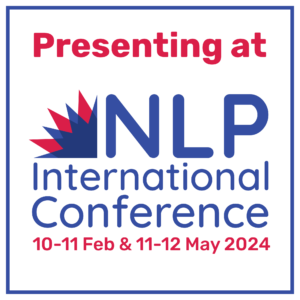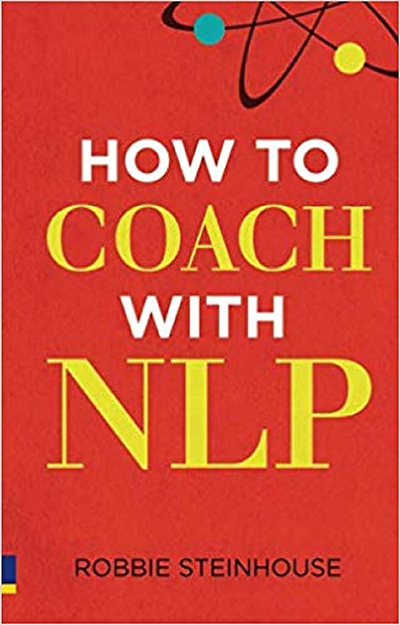How to Lead a Team with NLP

Team Profiling and NLP
One of the important principles from NLP is the idea that people can have the same desired outcome, but the way they express it can be so different that it leads to major problems in a team.
NLP has its own profiling methodology (like an extended Belbin or Myers-Briggs Type Indicator) called Meta Programmes.
These are also covered in my friend and colleague’s, Shelle Rose Charvet’s amazing book Words that Change Minds (voted as one of the top seven business books by Forbes last week). It is also covered in my How to Coach With NLP book.
In this blog, I will briefly highlight four of the main patterns and how these principles can revolutionise and harmonise communication in teams.
Few people are extreme poles, they tend to be more one and less of the other, but an understanding of the opposites is important to learn the principles. The examples I use are generalisations and may not always hold true for specific disciplines. However, they help to illustrate the point.
Four Patterns to Learn to Help Change the Way You Lead Your Team
1. ‘Towards’ or ‘Away From’
This is seeing the world as avoid problems or focusing on results.
A simple question asking, “What is important to you about your work?” will yield either a bunch of positive answers or a group of fears best avoided.
People who work in finance tend to look for problems to fix while people who work in sales or marketing tend to be more outcome focused.
Operations can often feature a mixture of both. Learning to lead such a team, means being able to talk both ‘languages’. Asking a finance specialist ‘what could go wrong?’ and a marketeer “What do we want to achieve?” gives equal ‘space’ for both to express themselves.
Ultimately, the direction of travel is the same, but clarifying what is wanted along with anticipating (and minimizing) what could go wrong is truly the best a team can do.
2. Chunk Size
This breaks down people into how much detail they naturally express.
The question, “tell me about a recent holiday or meal out?” will reveal how much detail people naturally will go into.
An answer which takes ten minutes and includes a lot of detail shows a small chunk mindset, while a brief general answer shows a big chunk one.
Small chunk tends to be an important feature of talented finance people, as attention to detail is essential part of that role. However, it can apply to anyone.
Big chunkers need to learn to tolerate what may seem as excessive detail or wasting time in meetings; while small chunkers need to accept that their love of detail can cloud what is actually important to achieve.
Again, a good mix of these is needed.
3. Locus of Control
If you are internally referenced it is your own judgement of your performance while externally referenced, you rely on other people’s judgement of your performance.
The question, “How do you know you have done a good job at work?” - translates into a either a simple “I just know” for the internals or “other people will have told me” for the externals.
Although ideally people do not stand at the extremes as externals can pursue endless failure blissfully satisfied with their performance, while internals can become rudderless without firm and approving management.
However, becoming aware of this pattern can help you manage these people better. Saying privately, “You already know that you did a good job” is all the praise an internal can take. While saying in front of the entire office, “What an amazing job you did!” will thrill and motivate an externals for ages.
These preferences can underlie an important feature of developing decision-making: using the appropriate mix of external evidence and gut feel that are both needed to make good decisions.
4. Approach to Problem-Solving
This is the procedures and alternatives patterns and is best explained by the answers to the following question, “Why did you choose your current work?”.
Someone with an options pattern might say “I considered various careers and alternatives, before ultimately choosing a path.”
Someone with procedures pattern would likely give a sequential narrative, “First I sent out some CVs; then I went for an interview; then I was offered the job; then I started.”
Shelle Rose Charvet points out that a procedures will delete the word ‘why’ from the original question and unconsciously replace it with the word ‘how’.
This is simply a different way of constructing reality; one is not better than the other – success in sales, finance or operations requires the ability to implement procedures consistently.
However, leadership requires the ability to consider alternatives before constructing a process which will need to be updated due to errors or new requirements.
Often an alternatives person who can construct a process is not always best equipped to actually use – strangely, the procedures person is often not the best person to actually design the process (although they can be the best to improve it).
How Can Knowing Your Pattern Help You and Your Team?
As I entered the world of professional development relatively late in life, I found the enthusiasm and labelling of people in the field, according to various psychological theories such as MBTI, Belbin or DISC somewhat limiting.
However, I am also aware that people recognise traits in both themselves and others in these theories which is useful in a number of ways.
Once you know your own pattern it is very helpful to acknowledge you will therefore have a natural bias for that pattern. This means you will potentially have problems or alienate people with a different pattern.
Running further with the generations I have used so far: the away from, small chunk, procedural, internally referenced accountant will have problems managing the big chunk, alternatives, externally referenced marketeer (and visa-versa).
I would argue that knowing your preferences and actively building the ‘weaker muscle’ opens up a ‘glass ceiling’ for career progression from a capable specialist manager to a wider leadership role.
Did you like this post?
Then come on our NLP Taster Day!










